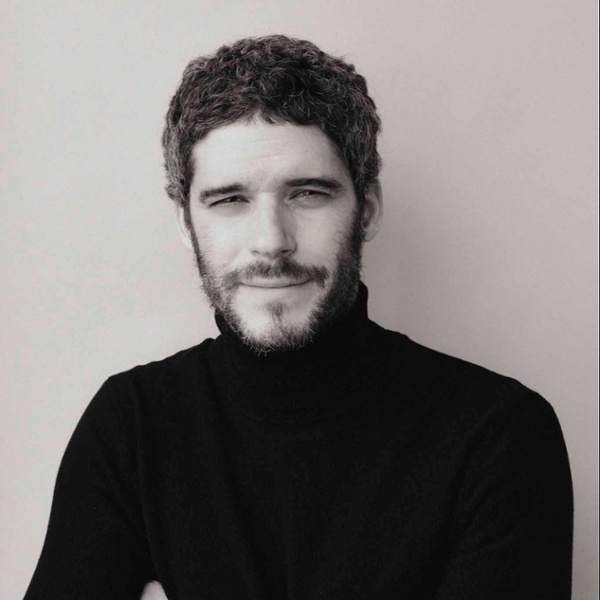David Koranyi serves as President of Action for Democracy, building a global pro-democracy solidarity movement committed to promoting democratic values and institutions and pushing back against the rising threat of autocracy worldwide. Previously David served as undersecretary of state and chief foreign policy and national security advisor to the Prime Minister of the Republic of Hungary, Gordon Bajnai, and as senior advisor on city diplomacy to Gergely Karácsony, the Mayor of Budapest, Hungary. He will participate in the Delphi Economic Forum that will take place 10 – 13 of April in Delphi.
Why did you feel the need to establish Action for Democracy?
The establishment of Action for Democracy stems from a critical need to respond to the alarming trends threatening democratic institutions and values globally. Observing the rising tide of authoritarianism, the erosion of the rule of law, and the challenges to the very fabric of democratic societies, it became imperative to create a platform that not only advocates for democracy but actively works to support, strengthen, and defend it. Our mission is to mobilize citizens, policymakers, and civil society organizations to help uphold democratic norms, promote transparency, and foster a global environment where freedom and the rule of law are cherished and preserved. In a world where autocratic leaders exploit vulnerabilities and societal divisions, and increasingly collaborate with each other, Action for Democracy aims to be a bulwark against such forces, championing the cause of liberty, equality, and justice.
Do you believe that democracy is in danger even in the EU and in the US?
Absolutely, the threat to democracy is not confined to regions with a history of unstable political structures; it’s increasingly evident within established democracies in the EU and the US. The rise of illiberal governments, populist movements, and far-right ideologies in these areas signifies a profound crisis of confidence in democratic institutions and the principles of open society. This crisis is manifested in the polarization of politics, the spread of misinformation, attacks on the free press, and the undermining of judicial independence. Such developments erode the foundation of democratic societies, threatening the protection of human rights and the rule of law. It’s a stark reminder that democracy is not self-perpetuating but requires constant vigilance and active participation to sustain and advance its ideals.
Is there a way for us to defend our values, our core institutions and most of all our freedom? And I ask that because we are witnessing people’s love for the far right parties and the populists in the US, in Hungary, in France, in Italy and even in the Scandinavian countries. So something is fundamentally wrong
Defending our values, institutions, and freedoms in the face of growing authoritarianism and populism is both possible and necessary. It requires a multifaceted approach that involves bolstering democratic institutions, ensuring fair and free elections, protecting the independence of the judiciary, and supporting a free and independent press. Educating the public about the importance of democratic principles and the dangers posed by authoritarianism is crucial. Additionally, addressing the root causes that fuel the rise of populism—such as economic inequality, social disenfranchisement, and cultural anxieties—is essential. By fostering inclusive and equitable societies, providing robust social safety nets, and ensuring that the benefits of globalization are widely shared, we can diminish the allure of populist solutions that often exacerbate the problems they claim to solve.
Globalization and also the many different crises of the last decade have made millions of people feel that they are being left behind. And in many cases that’s true why the democratic leaders are incapable of convincing these people that the solution is not Orban or Trump or Le Pen?
The failure of democratic leaders to convincingly address the concerns of those feeling left behind in the wake of globalization and multiple crises is indeed a significant challenge. It is imperative that these leaders offer genuine, practical solutions that address the economic and social grievances of their constituents. This involves not only advocating for policies that ensure equitable growth and opportunity but also communicating these policies effectively and empathetically. Democratic leaders must strive to rebuild trust by demonstrating that democratic governance can deliver tangible benefits and by addressing the sense of disenfranchisement felt by many. It’s about creating a narrative of hope and resilience that counters the simplistic and divisive solutions offered by figures like Orbán, Trump, or Le Pen.
Are you afraid That Trump will win the elections? And in your opinion what will that mean for the rest of the world?
The prospect of Donald Trump winning is indeed concerning, given his tendencies towards undermining democratic norms, alienating allies, and emboldening autocratic leaders globally. A victory for Trump could further polarize the US, strain international relations, and weaken the global coalition for democracy and human rights. It would likely embolden other populist and authoritarian leaders, undermine efforts to address global challenges cooperatively, and shift the international discourse away from the principles of democracy and rule of law. Thus it’s even more our duty to focus on strengthening democratic institutions, promoting civic engagement, and fostering international cooperation to mitigate these risks and ensure that democracy remains resilient in the face of such challenges.



